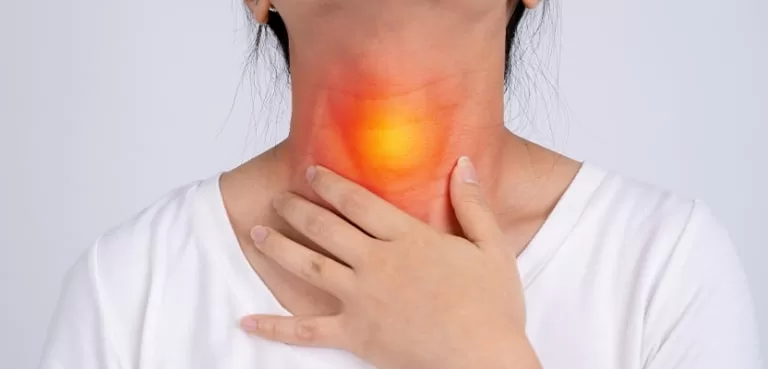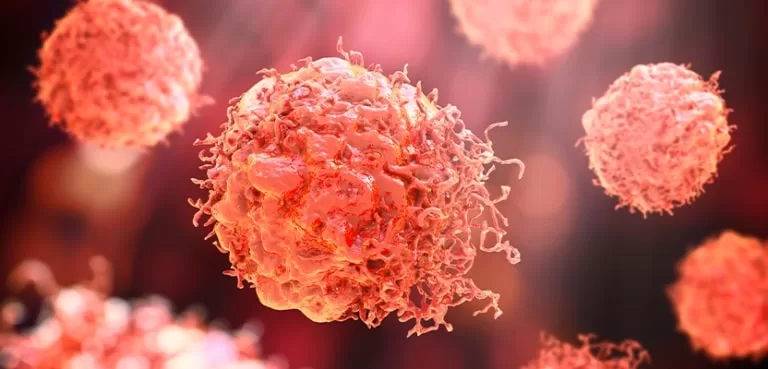+90 533 813 89 77
info@bookingforhealth.com
What Is Esophageal Cancer?
Esophageal cancer is a type of cancer that affects the esophagus, which is the muscular tube that carries food and liquid from the mouth to the stomach. It most commonly occurs in the cells that line the inside of the esophagus, and it can grow and spread to other parts of the body. There are two main types of esophageal cancer.
Squamous Cell Carcinoma: This type of cancer develops in the squamous cells that line the inside of the esophagus. It is more common in countries where people are at high risk for certain infections, such as the infection caused by the human papillomavirus (HPV).
Adenocarcinoma: This type of cancer develops in the glandular cells that line the inside of the esophagus. This type of esophageal cancer is more common in developed countries and is associated with acid reflux disease.
Symptoms of esophageal cancer include difficulty swallowing, pain or discomfort when swallowing, weight loss, and hoarseness or chronic cough. Esophageal cancer can be caused by multiple factors.

Smoking, excessive alcohol consumption, Barrett’s esophagus (a condition in which the cells in the lining of the esophagus become abnormal), and gastroesophageal reflux disease are among these causes. Diagnosis is done through various methods like physical examination, endoscopy, biopsy, x-ray, CT-scan, and MRI. Esophageal cancer can be treated through surgery, radiation therapy, and chemotherapy. The survival rate for esophageal cancer is highly dependent on the stage of cancer at the time of diagnosis. Early detection is crucial for a better outcome.
What Are the Causes and Symptoms of Esophageal Cancer?
Oesophageal cancer is a disease in which cancerous cells form in the tissues of the esophagus. The esophagus is the hollow, muscular tube that carries food and fluid from the throat to the stomach. Some factors can increase the risk of developing oesophageal cancer. These factors include tobacco use, excessive alcohol consumption, acid reflux or gastroesophageal reflux disease, Barrett’s a condition in which the cells of the lower esophagus change and become abnormal, obesity, age (oesophageal cancer is more common in people over the age of 50).
Symptoms of oesophageal cancer include difficulty swallowing, sudden weight loss, chest pain, hoarseness, coughing or wheezing, vomiting, indigestion or heartburn.
However, not all of these symptoms are specific to oesophageal cancer and can be caused by different health problems. It is extremely important to see a doctor if you have any of these symptoms.
What is Done in the Treatment of Esophagus Cancer?
The treatment options for esophageal cancer depend on the stage of the cancer and the patient’s overall health.
Surgery to remove the cancer is the most common treatment for esophageal cancer. The type of surgery will depend on the location and stage of the cancer. The most common type of surgery is esophagectomy, which involves removing the part of the esophagus containing the cancer.
Radiation therapy uses high-energy X-rays or other types of radiation to kill cancer cells. It may be used before or after surgery, or in combination with chemotherapy.
Chemotherapy is a treatment that uses medicaments to kill cancer cells. It may be used before or after surgery, or in combination with radiation therapy.
For early-stage esophageal cancer, endoscopic therapy may be used. This involves using an endoscope (a thin, flexible tube with a light and camera) to remove the cancer. Palliative care is a type of care for people with serious illnesses. It is focused on relieving symptoms and improving quality of life.
Some people with esophageal cancer may choose to participate in a clinical trial, which is a research study of new treatments. It’s important to work with a team of specialists, including a gastroenterologist, surgeon, medical oncologist, radiation oncologist, pathologist, and radiologist, to develop a treatment plan that is tailored to your individual needs.

What Should Be Considered After the Treatment of Esophageal Cancer?
After treatment of oesophageal cancer, it is important to schedule regular follow-up appointments with the healthcare team to monitor recovery and check for any signs of the cancer recurring. These appointments may include physical examinations, imaging tests, and endoscopies.
It is also important to make lifestyle changes to reduce the risk of cancer recurrence or developing other health problems. Examples of such changes include quitting smoking and avoiding exposure to secondhand smoke, limiting alcohol consumption, maintaining a healthy weight, eating a diet high in fruit and vegetables, managing reflux, and exercising regularly.
As a result of treatment, it may also be necessary to make adjustments to the dietary program, such as eating smaller, more frequent meals and avoiding foods that may cause discomfort.
You may also need to be assessed for long-term side effects of treatment. For example, radiation therapy can cause chronic dryness of the esophagus, which can lead to an increased risk of infection, difficulty swallowing, and strictures.